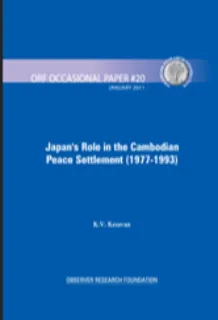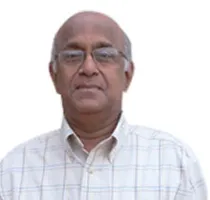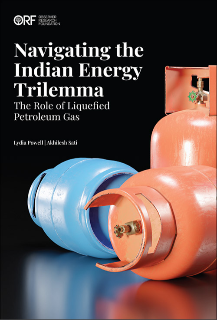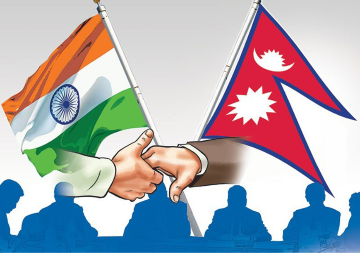The importance of Japan’s role in Cambodia’s peace settlement lies in the fact that it was one of the earliest political tasks Tokyo undertook in a region which had been known for its antipathy to Japan arising from the trauma of the Second World War. Southeast Asia posed one of the most serious challenges to Japan’s post-war diplomacy, as it had to wrestle not only with the bitter legacies of the war, but also with the rigours of Cold War rivalry. In addition to the US-Soviet rivalry, the Sino-Soviet confrontation exerted strong negative influences, particularly on Vietnam and Cambodia. To be sure, by 1978 when Vietnam invaded and occupied Cambodia, Japan had already settled the tortuous reparations issues and normalized its diplomatic relations with most of the Southeast Asian countries.
Indochina was a low priority area in Japan’s Southeast Asia policy after 1952. When in 1959 Japan established diplomatic relations with South Vietnam, it did so under considerable political compulsions. But this did not prevent Tokyo from maintaining nominal economic links with North Vietnam too. During the Vietnam War years, Japan’s diplomacy was put to severe test as it had to extend support to the US cause in the face of severe domestic resistance. After the end of the war, Japan lost no time in recognizing the unified Vietnam in 1975 and started forging economic links with Hanoi.
This positive approach received further stimulus in 1977 when Japanese Prime Minister Fukuda Takeo enunciated a new policy for the region. Known as the Fukuda Doctrine, it emphasized the following principles: Japan would never again play a military role in the region; Japan would maintain close, heart-to-heart understanding with ASEAN countries; this close relationship with the ASEAN would not be inconsistent with fostering mutual cooperation with Vietnam and other Indochinese countries. Economic relations between Japan and Vietnam began to develop, but Tokyo and ASEAN had certain shared concerns about Vietnam’s possible dominance in the Indochina peninsula. These concerns were clearly visible when Vietnamese Foreign Minister Nguyen Duy Trinh paid a visit to Tokyo in December 1978. Trinh had undertaken the visit to assure his Japanese hosts that Vietnam’s treaty of friendship with the Soviet Union signed in September, 1978 would in no way deprive his country of its freedom to pursue an independent policy in its relations with Japan. Trinh’s other objective was to obtain substantial Japanese economic assistance for Vietnam. His expectations were partially fulfilled in the sense that Japan agreed to extend 10 billion yen grant in aid. But Tokyo took care to clarify that its aid commitment would be governed by the condition that Hanoi would continue to pursue “an independent line” in its foreign policy.
Japan’s apprehensions proved well founded when Vietnam’s forces occupied Cambodia in December 1978. The installation of the pro-Soviet Heng Samrin regime in Cambodia alarmed Japan and it had to quickly make up its mind whether it should recognise the new regime in Phnom Penh. A brief consideration of what followed the Cambodian scene soon after the invasion would be relevant to Japan’s approach to the issue. The new proVietnamese government installed under the leadership of Heng Samrin and Hun Sen was known as the People’s Republic of Cambodia, which came to be rechristened as the State of Cambodia after 1989.
Though the Phnom Penh Government controlled nearly 80% of the Cambodian territories, it did not enjoy the support of important countries outside the Socialist bloc. In addition, the three major factions that opposed the Heng Samrin administration launched a resistance movement. The first group known as FUNCINPEC (Front Uni National pour un Cambodge Independent.Neutre, Pacifique, et Cooperatif) was led by Prince Norodom Sihanouk. Despite Sihanouk’s charisma, his faction controlled a very small area of the country and possessed only 10,000 troops. Another group known as Khmer People’s National Liberation Front (KPLNF) comprised conservative elements and had only 5,000 combatants. But by far the strongest group with 30,000 troops at its command was the Khmer Rouge, led by Khieu Samphan This group was infamous for its mindless violence when it was in power before the Vietnamese invasion. Associated with Pol Pot, it raised images of fear and terror. Despite the differences in their political orientations and strategies, the three groups founded a resistance government called 3 Coalition Government of Democratic Kampuchea (CGDK). Divergent countries like the US, China, ASEAN and Japan extended their support to the coalition largely based on what they perceived to be their own national interests. The US supported it because of its ideological resistance to the global Communist movement. China’s support was governed by its differences with the Soviet Union, which was a close ally of Vietnam. The ASEAN Group felt that the Vietnamese invasion was a threat to the evolution of regional cooperation and unity. How did Japan respond to it?

 PDF Download
PDF Download



 PREV
PREV


